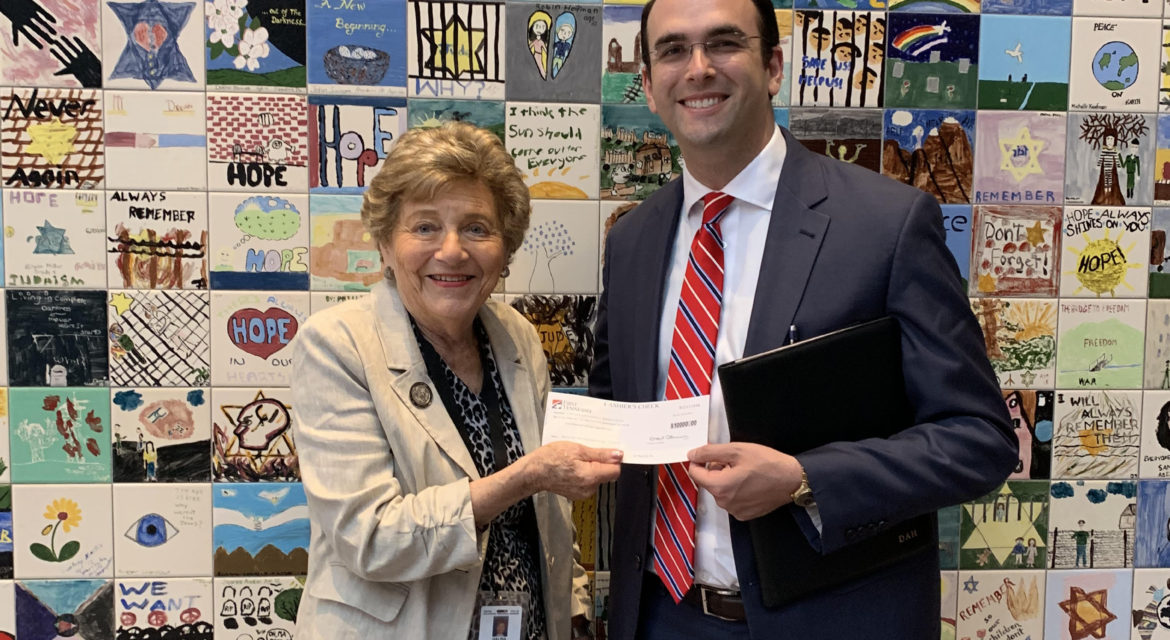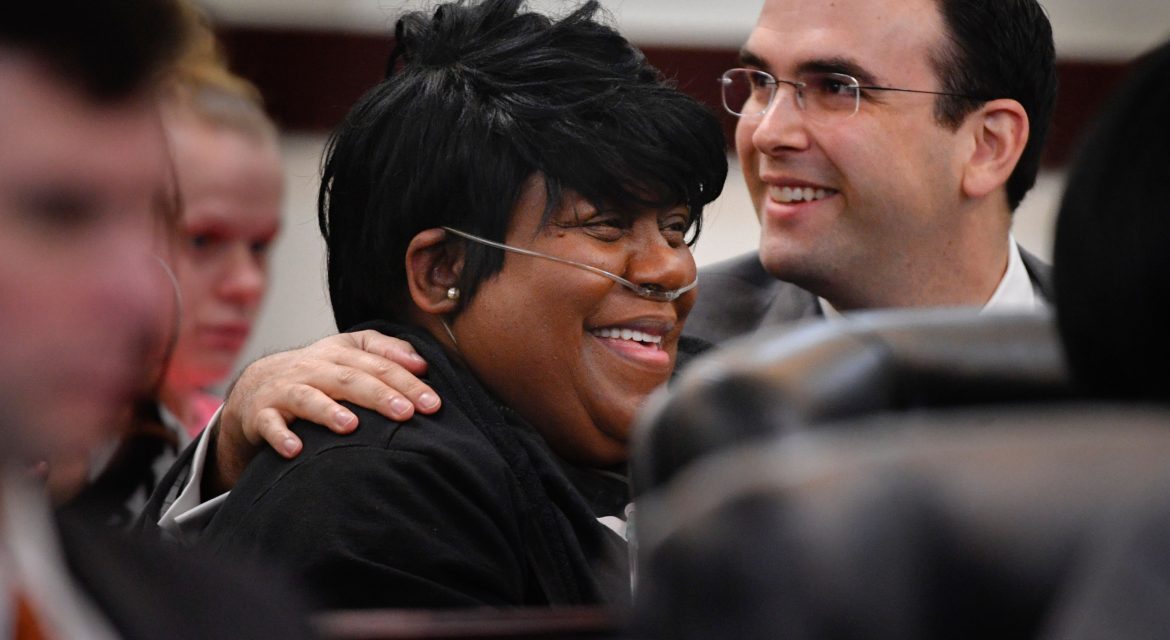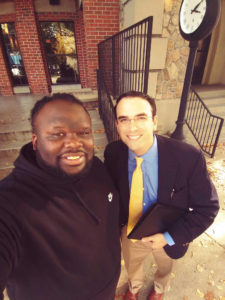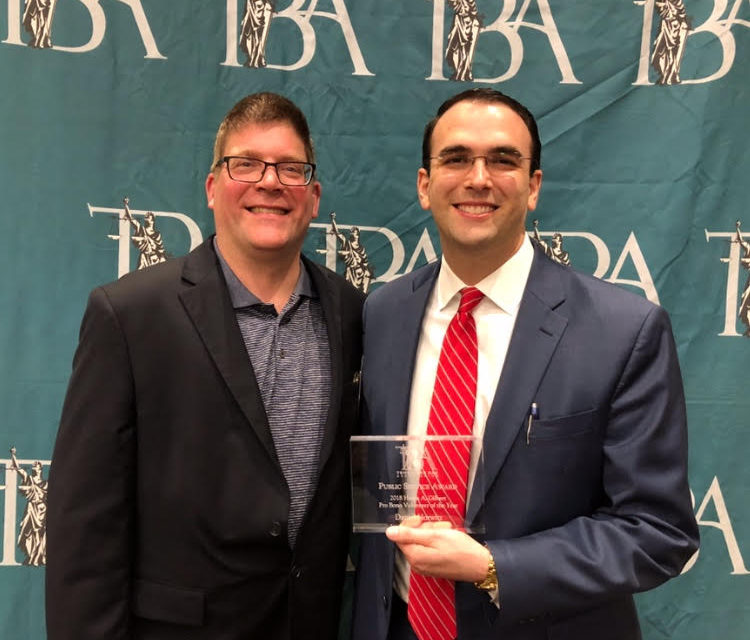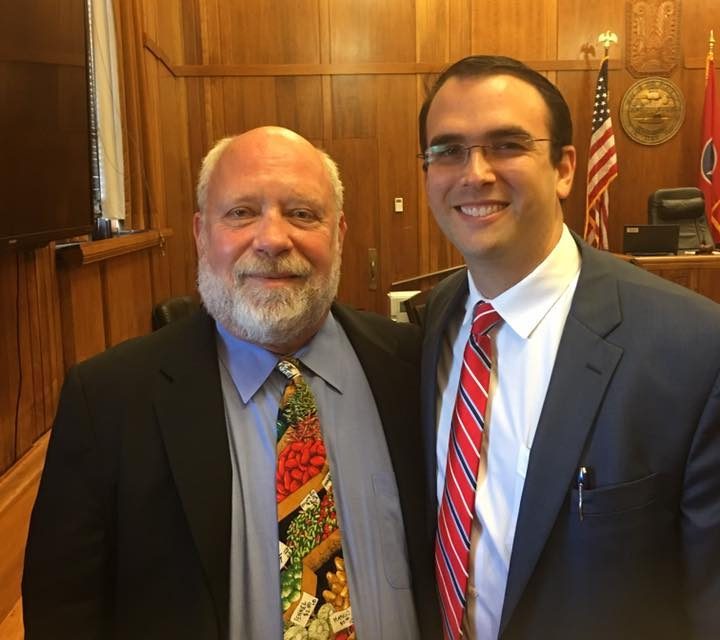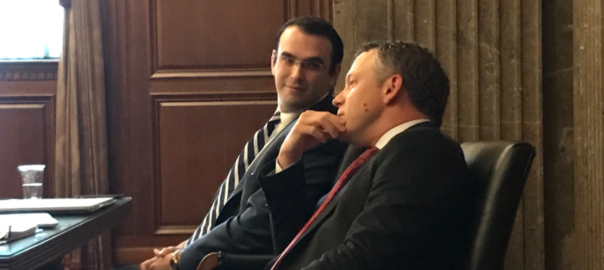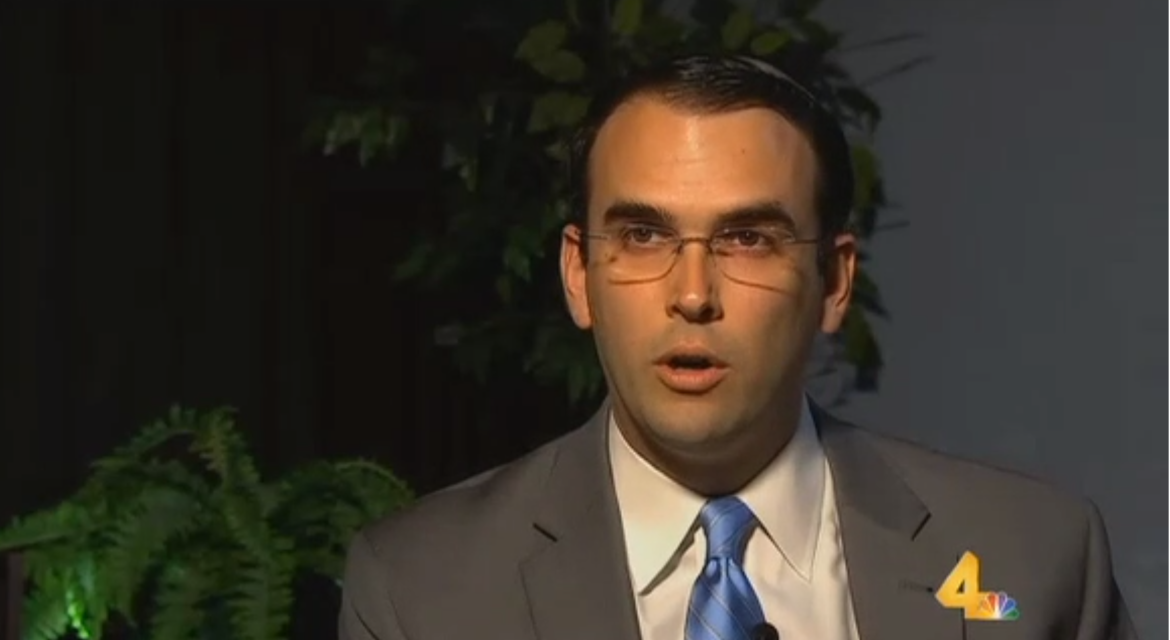Each year, the Tennessee Bar Association recognizes outstanding service by attorneys who have dedicated their time to helping others. The TBA’s annual public service awards include the Harris Gilbert Pro Bono Volunteer of the Year, which recognizes private attorneys who have contributed a significant amount of pro bono work and have demonstrated dedication to the development and delivery of legal services to the poor. The award is named after Gilbert, a Nashville attorney and past Tennessee Bar Association president, who exemplifies the Bar’s commitment to public service. The TBA’s story recognizing Horwitz, authored by Katharine Heriges, is available here and reprinted below.
Harris Gilbert Pro Bono Volunteer of the Year
It’s hard to not be impressed with Daniel Horwitz.
Every year, the Tennessee Bar Association honors members of the legal community who have led impressive careers, but even among that noteworthy cohort, Horwitz stands out.
His cases have been written about in Slate, Forbes and USA Today, to name a few. He’s been published and cited in a number of legal publications. He’s had cases in front of the Tennessee Supreme Court. Runs a successful legal blog. Has clocked in thousands and thousands of hours of pro bono service.
And he hasn’t even turned 35.
Horwitz came to Tennessee to attend Vanderbilt Law, of which he is a 2013 graduate. A Los Angeles native and undergrad alum of Cornell University, he calls himself the “black sheep” of a family of scientists and doctors for choosing a legal career.
Black sheep? It’s a little tough to believe.
Everything about Horwitz is improbable though — not the least of which being his penchant for taking on seemingly impossible pro bono civil rights cases and winning.
In a particularly high-profile example that took place this year, Horwitz represented Maximiliano Gabriel Gluzman, an Argentine native and Vanderbilt Law graduate who was stopped from sitting for the Tennessee Bar exam by the Tennessee Board of Law Examiners. Despite finishing Vanderbilt’s LL.M. program with a 3.9 GPA, Gluzman was denied the chance to take the Bar in Tennessee because of his previous Argentinean legal education. Married to an American woman from Memphis, relocation outside of Tennessee would have been difficult and he had few options available to him.
Gluzman guesses that Horwitz dedicated more than 200 hours to the case.
“I knew if anyone was going to go to the mat for Maxi, it would be Daniel,” said David Hudson, a friend and former professor of Horwitz’s who first connected him to Gluzman.
Horwitz didn’t just represent Gluzman, whose case ended up in front of the Tennessee Supreme Court. He used every tool in the toolbox to turn a legal matter into a full-blown movement.
Horwitz pressed for media coverage, which he received from local and national outlets. The University of Tennessee and Vanderbilt University were recruited to jump on board as well, filing briefs in support of Gluzman. Although Horwitz once served as Election Counsel for the Tennessee Democratic Party, he petitioned national conservative groups to support Gluzman’s endeavor. The Beacon Center of Tennessee, the Washington, D.C.-based Cato Institute and Arizona’s Goldwater Institute all submitted amici curiae briefs on Gluzman’s behalf.
Hudson called Horwitz’s effort “Herculean.” For Gluzman, it was life changing.
With the Supreme Court ruling in his favor, Gluzman will be allowed to sit for the February 2018 Bar exam. Aside from doing right by his client, the implications of this case will be felt for years to come. The Tennessee Supreme Court is currently reviewing changes to Rule 7 of the Rules of the Supreme Court, the section that covers Bar admission.
To hear Horwitz describe the case, it seems like it’s “all in a day’s work.” But a day’s work for the average young lawyer doesn’t always include nationally significant cases, does it?
The majority of his pro bono work, however, doesn’t receive gavel-to-gavel coverage.
“He routinely helps indigent people expunge their criminal records free of charge, assists the poor with landlord-tenant disputes, and represents crime victims who have nowhere else to turn for help to secure their safety,” said attorney Joy Kimbrough, who has worked with Horwitz. “Few are aware of this work, because (he) doesn’t talk about it.”
Like the case of Amy McDowell (not her real name), a woman Horwitz represented in a case of stalking and harassment. In 2016, McDowell had recently moved to Nashville and had been receiving incessant calls and voicemails from a man threatening to set her on fire. She went to the police with the information, but after they were unable to trace the calls, they said that there was little they could do unless violence had actually been committed.
Horwitz took on her case with dogged commitment.
“Soon, (he) had both a private investigator and the District Attorney private investigator working on the case,” McDowell said. “Within two months, we successfully had a correct ID on the perpetrator, something even the police thought was nearly impossible.”
The man was arrested and pleaded guilty to misdemeanor charges, but that wasn’t enough for Horwitz.
“(He) did not end the case with the first arrest, but continued to fight on my behalf to pursue felony charges,” McDowell said. The man who tormented McDowell is currently serving time in jail thanks to Horwitz.
McDowell said Horwitz clocked more than 55 pro bono hours on her case over 19 months.
Listening to friends talk about Horwitz is a nonstop list of his audacious achievements:
What about the time he got a Nashville man’s 1995 sodomy conviction expunged using a writ of audita querela, which hadn’t been seen in a Tennessee court in a century?
What about his case against the White County judge who offered time off of jail sentences for inmates who agreed to undergo birth control procedures?
What about his work serving on the YWCA board?
What about his legislative lobbying efforts on behalf of indigent litigants?
Simply put, Horwitz doesn’t stop.
“He’s not only brilliant, he’s got an indefatigable work ethic,” Hudson said. “And a strong sense of justice.”
Hudson described befriending him while they co-clerked for Tennessee Supreme Court Justice Sharon Lee: “Sometimes he would work until 10 p.m. at night. I was long gone by then.”
Horwitz said he makes civil rights and pro bono work a priority in his life and practice, but also notes that he has the time because he works for himself.
“I’ve never worked for a corporate law firm,” he said. “I know some people (at corporate firms) are able to do a significant amount of civil rights-related pro bono work, but I know a lot of them can’t. I’ve never had to deal with those kinds of barriers.”
He points out that for many new law graduates who want to take part in impactful civil rights work, the cost of student loans — and the pressing need to make payments on time — in many ways make it impossible. New lawyers find themselves having to take the job that pays best, rather that the position that will lead to the most significant career.
“It’s a huge problem,” Horwitz said.
It’s one that needs to be addressed, because the legal profession is in need of attorneys who are ready to change the justice system.
“I think it’s really important for lawyers to represent unpopular clients who have important causes,” Horwitz said. Like a current client, who’s serving three consecutive lifetime sentences for a crime he committed when he was 14. “Nobody wants to go near those cases — they are devastating to everyone who has any connection to them. But we’re talking about kids here. The U.S. Supreme Court has held repeatedly that kids are different.”
Horwitz said it’s great when those types of cases get public attention.
“But it’s easy to forget that those cases aren’t rare,” he added. “Lots of people have devastating stories that don’t get any kind of attention or garner any sympathy. It would be nice if we gave more than lip service to all of them.”
— Katharine Heriges
